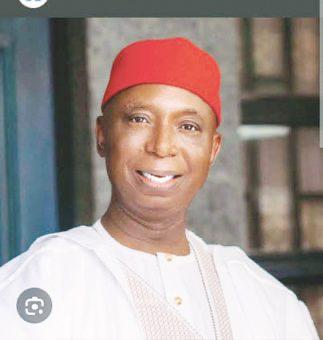
The Senator representing Delta North Senatorial District, Senator Ned Nwoko, has renewed calls for the creation of Anioma State as the long-anticipated sixth state of Nigeria’s South East geopolitical zone, stating that the agitation transcends modern politics and speaks to history, justice, and national unity.
The lawmaker, who has formally sponsored a bill to that effect in the 10th Senate, described the initiative as a continuation of a generational demand rooted in cultural and ancestral heritage. According to him, the call for Anioma State dates back to the Mid-Western Region era and was championed by leaders such as the late Premier, Chief Dennis Osadebe.
Nwoko said the Anioma people—currently part of Delta State—share deep historical, linguistic, and cultural ties with the Igbo-speaking communities of the South East. He stressed that the proposal is not politically motivated but a mission to reunite kindred people separated by past administrative restructuring.
“My legislative duty is a voice for the people I represent, and Anioma’s inclusion in the South East through statehood is a legacy I intend to pursue, not just as a Senator, but as a prince of Idumuje-Ugboko and a descendant of HRH Obi Nwoko I,” he said.
The lawmaker believes that the creation of Anioma State would reinforce national unity, enhance security, and unlock human and material potential in the region. He urged the current administration of President Bola Ahmed Tinubu to consider the proposal as part of its legacy of equity and inclusion.
“We seek more than a state—we seek validation, unity, and equity,” Nwoko noted, adding that “when equity is established, discontent takes flight.”
While acknowledging that some individuals may oppose the proposal for political or economic reasons, Nwoko insisted that the greater good must prevail. He stated that a referendum would give Anioma people the platform to formally express their aspirations.
A Region Ready to Thrive
The Senator emphasized that the Anioma area—made up of vibrant communities rich in natural and human resources—is economically viable and strategically positioned to become one of the most productive states in Nigeria. He cited the region’s contributions to banking, oil and gas, academia, diplomacy, politics, and media.
“It is not surprising that other parts of Delta benefit immensely from Anioma’s productivity. Yet, our people still yearn for their true identity to be officially recognized,” he said.
Addressing Historical Injustices
Nwoko pointed out that Nigeria’s post-civil war restructuring contributed to an identity crisis among Anioma people, who have been called Midwestern Igbos, Bendel Igbos, Rivers Igbos, and now Delta Igbos. He said the establishment of Anioma State would heal these wounds, foster inclusion, and correct a historical imbalance in the South East.
He referenced emotional scars from events like the Asaba Massacre as evidence that symbolic and structural justice is needed to reassure the younger generation and consolidate national cohesion.
“Treat a child like his mates and he will be happy. Anioma people want to be treated as equals among their kindred. The South East needs a sixth state. Anioma is ready,” he concluded.
Background
Nigeria’s South East zone is currently the only geopolitical zone with five states—Abia, Anambra, Ebonyi, Enugu, and Imo—compared to six or more in other zones. The proposal for Anioma State aims to address this imbalance and fulfill a long-standing demand for federal character and equitable representation.
As debates continue in the National Assembly, the Anioma question is gradually gaining renewed national attention, with analysts pointing to its potential to set a precedent for peaceful restructuring and sustainable national integration.
